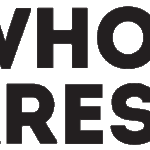Youm e Azadi, also known as Independence Day, is a significant occasion for every citizen of a nation. It represents Pakistan’s hard-earned freedom and sovereignty from the British Raj.
However, for persons with disabilities, the concept of Azadi (freedom) extends beyond political independence; it encompasses the right to live with dignity, equality, and full participation in postcolonial society.
For much of history, we have been told that the Sun never sets on the British Empire, a phrase that symbolized the vastness and power of colonial rule. Yet, despite the vast territories and wealth controlled by the British Empire, true freedom was absent for millions of people across the globe who were subjected to oppression, exploitation, and denial of basic human rights, and to this date.
The purpose of being Azad (free) is not merely about breaking the chains of colonialism or foreign domination.
For persons with disabilities, being Azad means breaking the chains of societal barriers, prejudice, and discrimination that have long restricted their full participation in all aspects of life. It means having the freedom to access education, employment, healthcare, and public spaces without facing physical, social, or institutional obstacles.
True independence for persons with disabilities also involves the freedom to make choices about their own lives, to have their voices heard, and to contribute to the community as equal citizens. It is about the right to live independently, to enjoy the same opportunities as everyone else, and to be treated with respect and dignity.
Are we (the disabled) really Azad in society in Pakistan and within the West? I do not think this is the case? We may be in factions within the Western Hemisphere, but certainly, we are not free.
On this Youm e Azadi, let us remember that the struggle for independence is not complete until every member of society, regardless of ability, can experience the true essence of freedom in their societies.

